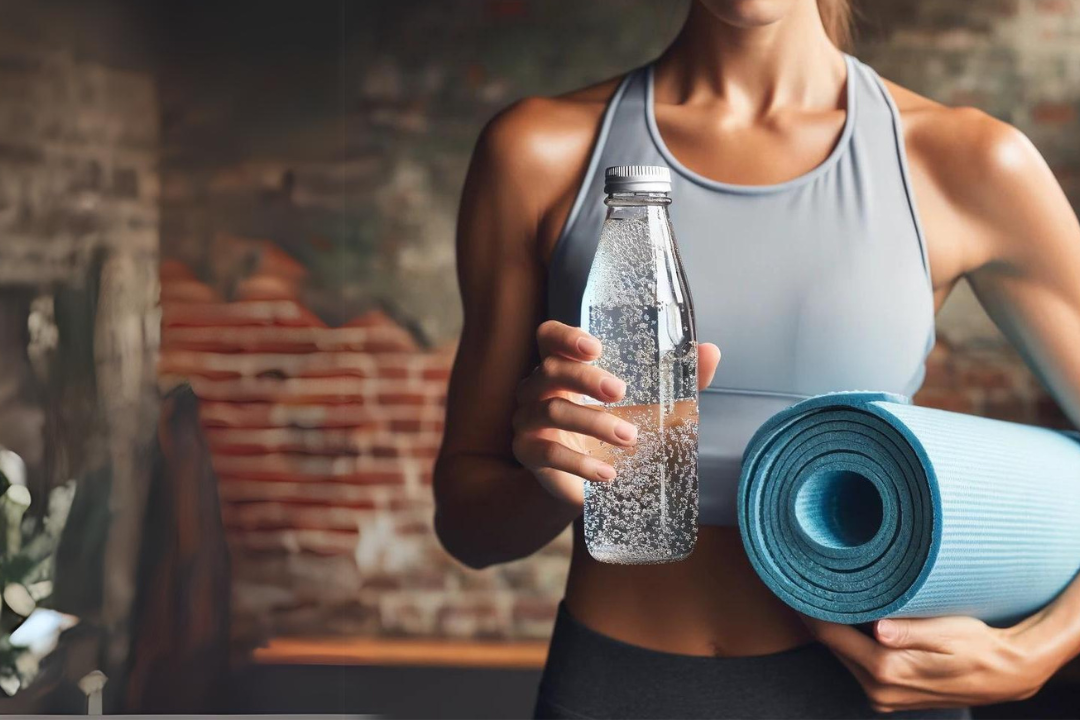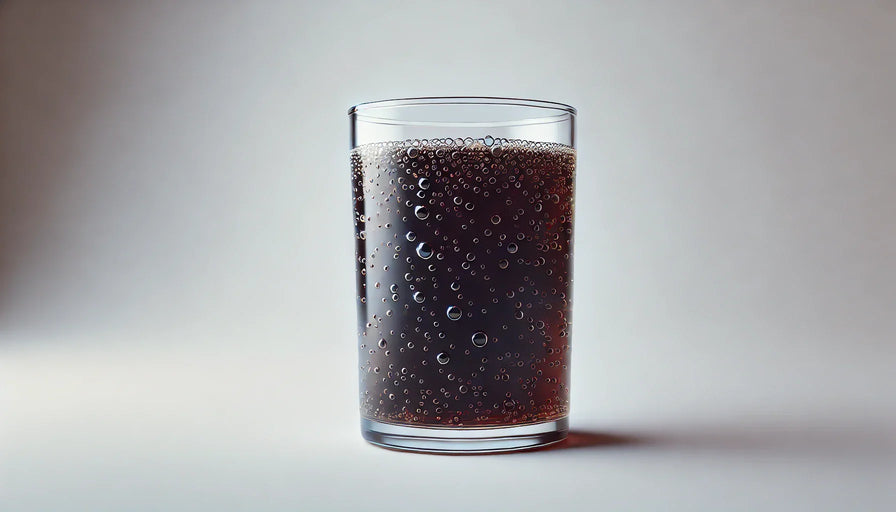
What Are Electrolytes and Why Are They so Good for You

Summary
Electrolytes are essential minerals that help regulate vital bodily functions, such as hydration and muscle contractions. Common electrolytes include sodium, potassium, and magnesium, which are crucial for maintaining overall health.
If you're like most health-conscious individuals, you know that hydration is an essential part of maintaining good health. But did you know that electrolytes play an equally important role in keeping your body functioning optimally?
From the sodium and potassium in your cells to the magnesium found deep within muscles, understanding what electrolytes are and why they're so beneficial can help you achieve better overall health and wellness.
Now, let's answer the first most important question:what do electrolytes do?
Table of contents
What do electrolytes do?
Simply put, electrolytes are minerals in your body that carry an electrical charge. These charged minerals are essential for many bodily functions, such as maintaining proper hydration levels, regulating nerve and muscle function, and balancing blood acidity. Without proper electrolyte levels, the body can experience negative symptoms such as muscle cramps, fatigue, and irregular heartbeat.
Learn More About Our CO2 Exchange Program.
What are electrolytes good for?
Electrolytes play a crucial role in maintaining balance within our bodies and ensuring that our bodily systems function properly. From muscle contractions to nerve impulses, electrolytes are good for numerous bodily processes. These charged minerals are found in bodily fluids, including blood and sweat, and are essential in regulating our hydration levels.
When it comes to our health, it's imperative that we understand the role of electrolytes and how to maintain a healthy balance of these vital minerals in our bodies. Whether it's through proper hydration or a balanced diet, taking care of our electrolyte levels can help us feel better and perform at our best.

Which of the following electrolytes is especially important for proper heart rhythm
Maintaining a proper heart rhythm relies heavily on the essential mineral, potassium. This vital nutrient plays a key role in muscle contraction, heartbeat regulation, and proper nerve function. Insufficient potassium levels in the bloodstream can lead to arrhythmias or irregular heart rhythms. Hence, it's crucial to keep potassium levels within the normal range for a healthy heart rhythm.
Consuming potassium-rich foods like bananas, oranges, and spinach can help achieve this balance. Additionally, seek guidance from your healthcare provider regarding dietary adjustments or supplements to maintain optimal potassium levels.
Electrolytes broken down
Sodium
Sodium, often maligned in our salt-loving society, is, in fact, a critical electrolyte. It plays a pivotal role in maintaining fluid balance in the body and supporting nerve and muscle function. While excess sodium can lead to hypertension, adequate amounts are necessary to maintain proper bodily functions.
Potassium
Potassium is an unsung hero in the world of electrolytes. It works in tandem with sodium to regulate fluid balance, maintain healthy blood pressure, and support heart, muscle, and nerve cell function. Bananas, anyone?
Calcium
When we talk about calcium, we often think of strong bones and teeth. However, this mighty mineral serves as an electrolyte too, playing a key role in muscle contractions and nerve signal transmission. Now, you have another reason to say yes to that cheese platter.
Magnesium
Dubbed as the relaxation mineral, magnesium helps maintain muscle and nerve function, steady heart rhythm, and a robust immune system. It's also pivotal in creating energy for your body. So, don't skimp on those magnesium-rich foods.
Chloride
Often overshadowed by its sodium counterpart, chloride is crucial for maintaining proper hydration, producing gastric acid, and transmitting nerve impulses. It's most commonly consumed through table salt.
Bicarbonate
Bicarbonate serves as an essential electrolyte regulator, ensuring the body's pH balance remains in check and preventing excessive acidity or alkalinity. It quietly works behind the scenes to maintain harmony within our bodies, keeping everything in perfect equilibrium.

What has electrolytes?
Electrolytes play a vital role in maintaining fluid balance, nerve and muscle function, and other crucial physiological processes. Luckily, obtaining these essential minerals doesn't have to be daunting. There are numerous sources of electrolytes that can be easily incorporated into your diet. Some of the finest sources include fruits like bananas and avocados, vegetables such as spinach and broccoli, and dairy products like yogurt and milk.
For those seeking a more convenient solution, sports drinks, and electrolyte-infused water offer a quick and effortless way to replenish electrolyte levels. By integrating these sources into your daily routine, you can ensure optimal hydration and optimal bodily function.
Benefits of adding electrolytes to your diet
Electrolytes are vital nutrients that play a critical role in maintaining overall bodily functions. These electrically charged minerals assist in balancing fluids, regulating blood pressure, and supporting nerve and muscle function. Incorporating these essential nutrients into your diet can bring about numerous benefits, including expedited post-exercise recovery, enhanced cognitive function, and a healthier gut.
Sodium, potassium, calcium, magnesium, chloride, and phosphate are among the essential electrolytes found in various foods and beverages. Therefore, to bolster your health and performance, it is time to incorporate more electrolyte-rich foods and drinks into your daily routine.
Related Read: What Are the Health Benefits of Drinking Sparkling Water?

What are normal ranges for electrolyte levels?
Maintaining a balance of electrolytes is vital for your body to function optimally. Each electrolyte has a specific normal range in the body. Here are some common electrolytes and their respective normal ranges:
- Sodium: The normal range for sodium is typically between 135 and 145 milliequivalents per liter (mEq/L).
- Potassium: A healthy potassium level is generally between 3.6 and 5.2 millimoles per liter (mmol/L).
- Calcium: The normal range for calcium is usually between 8.5 and 10.2 milligrams per deciliter (mg/dL).
- Magnesium: For magnesium, the normal range is typically between 1.7 and 2.2 milligrams per deciliter (mg/dL).
- Chloride: A normal chloride level is usually between 96 and 106 mEq/L.
- Bicarbonate (HCO3): The usual range for bicarbonate is between 22 and 29 mEq/L.
Bear in mind that these ranges can vary slightly depending on the lab that analyzes the results. Always consult with a healthcare provider or a medical professional to understand lab results to maintain healthy electrolyte levels.
Are bananas good for electrolytes?
Absolutely! Bananas are the rockstars of the fruit world when it comes to electrolytes. They're packed with potassium, a critical electrolyte that maintains fluid balance, nerve function, and muscle contractions in the body. They're like a natural energy drink, minus the neon color and excessive sugar.
Bonus: bananas also contain magnesium and calcium, two more important electrolytes for overall health. So next time you need a boost or are feeling dehydrated, reach for a banana instead of that sugary sports drink. Your body will thank you!
How do I know if I need more electrolytes?
Understanding if you need more electrolytes often comes down to recognizing the signs of an imbalance. Symptoms can include a range of discomforts such as fatigue, headaches, muscle cramps, and mood changes.
Dehydration, excessive sweating, a poor diet, or illness, can cause these symptoms. It's also important to note that certain conditions may interfere with your body's ability to regulate electrolytes. These include kidney disease, heart disease, hormonal disorders, and certain medications.
Always consult with a healthcare provider if you experience persistent symptoms. Remember, a balanced diet rich in fruits, vegetables, whole grains, and lean protein usually provides an adequate supply of electrolytes. However, during intense physical activity, hot weather, or when you're unwell, you may need to up your intake with an electrolyte-replenishing-sparkling drink.
Related Read: How Much Water Should I Drink Per Day?
Foods rich in electrolytes
We've talked about the what, why, and how of electrolytes. Now, let's get to the tasty part - the food! Many fresh fruits, vegetables, and dairy products are chock-full of these essential minerals.
By incorporating these into your daily meals, you won't just be satisfying your taste buds, you'll also be fueling your bodies with the essential electrolytes. So, without further ado, let's dive into some of the most electrolyte-rich foods that Mother Nature has to offer:
- Bananas: Rich in potassium, bananas help regulate heart function and fluid balance.
- Spinach: It's a magnesium powerhouse! This nutrient is essential for energy production.
- Avocado: These creamy fruits are packed with potassium, magnesium, and a pinch of sodium.
- Sweet Potatoes: A single sweet potato contains an impressive amount of potassium, magnesium, and calcium.
- Yogurt: An excellent source of calcium, yogurt also contains a significant amount of potassium.
- Almonds: High in magnesium and calcium, almonds are a great snack for replenishing electrolytes.
- Oranges: These citrus fruits are not only high in vitamin C, but also loaded with potassium.
- Coconut Water: Known as nature's sports drink, coconut water is rich in potassium and magnesium, making it a great post-workout drink.
Remember, a balanced diet can keep your electrolytes in check. So, let's go bananas for electrolytes!

Ways to add more electrolytes to your diet
Electrolytes play a vital role in our body's overall function. They are responsible for regulating fluid balance, transmitting nerve impulses, and helping our muscles contract and relax properly. However, many people do not get enough electrolytes in their diet, especially if they are active or live in hot climates. Luckily, there are plenty of delicious and easy ways to boost our electrolyte intake.
Options include adding coconut water to smoothies, snacking on nuts and seeds, incorporating dark leafy greens like spinach into meals, and reaching for potassium-rich foods such as bananas and avocados. With a few simple tweaks to our diet, we can ensure we're properly fueling our bodies with the electrolytes they need to function at their best.
Sparkling water recipes to boost electrolyte intake
Sparkling water can serve as an exciting base for creating electrolyte-rich beverages. Grab your soda maker, and CO2 canisters, and let's bubble up some fun with these refreshing recipes:
- Citrus Sparkler: Combine sparkling water with freshly squeezed juice from oranges and lemons. Both fruits are rich in potassium and add a tangy twist. Garnish with a slice of lime for that extra zest and a hint of calcium.
- Berry Blast: Muddle some strawberries and raspberries, and add them to your sparkling water. These berries are packed with magnesium and give your drink a sweet and slightly tart flavor.
- Cucumber-Mint Cooler: Create a refreshing blend by adding cucumber slices and fresh mint leaves to your fizzy water. Cucumbers are a good source of potassium, while mint adds a fresh finish.
- Pomegranate Spritz: Add pomegranate juice to your sparkling water. Pomegranates are known for their high potassium and magnesium content. Float in a few pomegranate arils for a delightful crunch.
- Coconut-Lime Refresher: Combine coconut water and sparkling water at a 1:1 ratio. Add a squeeze of lime juice. This drink is rich in potassium and magnesium and has a tropical flair.
Remember, while these drinks provide additional electrolytes, they should complement a balanced diet, not replace whole foods. Hydrating with these sparkling delights can be a fun and flavorful way to boost your electrolyte intake. So, let's raise a glass to sparkling hydration!
Looking for more recipes? Check out our most recent bubbly beverages you can make at home with your soda maker.
Does sparkling water have electrolytes?
Typically, plain sparkling water does not contain a significant amount of electrolytes, as it's essentially just water that's been carbonated. It provides the same hydration benefits as still water, with the additional perk of those satisfying bubbles. Some brands, however, offer mineral sparkling water which can contain minerals like sodium, calcium, or magnesium, yet the levels are quite nominal and should not be relied upon as a primary source of electrolytes.

That said, it's increasingly common to find electrolyte-infused sparkling waters on the market. These are specifically designed to provide hydration plus a beneficial boost of key electrolytes, making them a great choice for post-workout recovery or for hydration on particularly hot days. Consuming a pairing of electrolyte-rich foods and sparkling electrolyte-dense drinks can yield great results in maintaining optimal electrolyte balance.
The importance of monitoring and balancing your intake of electrolytes
Electrolytes play a crucial role in maintaining the balance of fluids in the body, as well as supporting muscle and nerve function. However, consuming too much or too little of these essential minerals can have negative consequences on one's health. It's important to monitor and balance your intake of electrolytes, especially during physical activity or times of illness.
Sipping on electrolyte-infused water or sports drinks can help replenish any lost electrolytes, but it's also important to be mindful of your diet. Foods like bananas, avocados, nuts, and leafy greens can help naturally restore electrolyte levels. Keeping a close eye on your electrolyte intake can help improve overall health and prevent potential health complications.
In summary
Drinking electrolytes can positively affect your overall health and well-being. It can help to keep your cells hydrated, regulate body temperature, aid in nerve transmission, and help give you a boost when feeling fatigued or dehydrated. Adding more electrolyte-rich foods to your diet can have many lasting benefits on your energy levels and overall fitness goals.
Most of us are not aware of the abundance of electrolyte-rich whole foods that exist right in our own kitchen or pantry - from vegetables, fruits, nuts, and grains to dairy products and fish. By including these in our diets, we can ensure that our bodies get all the essential minerals they need - while also helping us to stay fuller for longer periods of time.
Remember: if plain water is getting boring, don’t forget about sparkling water! They are tasty and provide essential electrolytes to fuel your body and keep it running strong - along with other hydration boosters like sodium, magnesium, and potassium. Ready to turn up the nutrition? Join the CO2 Refill Club now and start making sparkling water at home so that you can easily get your daily dose of necessary electrolytes!
Recommended reading

How to Give Back During Thanksgiving 2025
Key takeaways Thanksgiving is a time to express gratitude and share with those in need. From volunteering at local shelters to donating food and essentials, there are numerous ways to give back to...

What Does Carbonation Do to Your Body?
What does carbonation do to your body? Carbonation alone typically has minimal effects; however, it can cause bloating and discomfort for some, and it may worsen acid reflux due to carbon dioxide ...

What Are the Health Benefits of Sparkling Water?
Summary Sparkling water isn't just a refreshing drink—it comes with surprising health benefits too. From aiding digestion to improving hydration, discover how sparkling water can be a healthy addi...